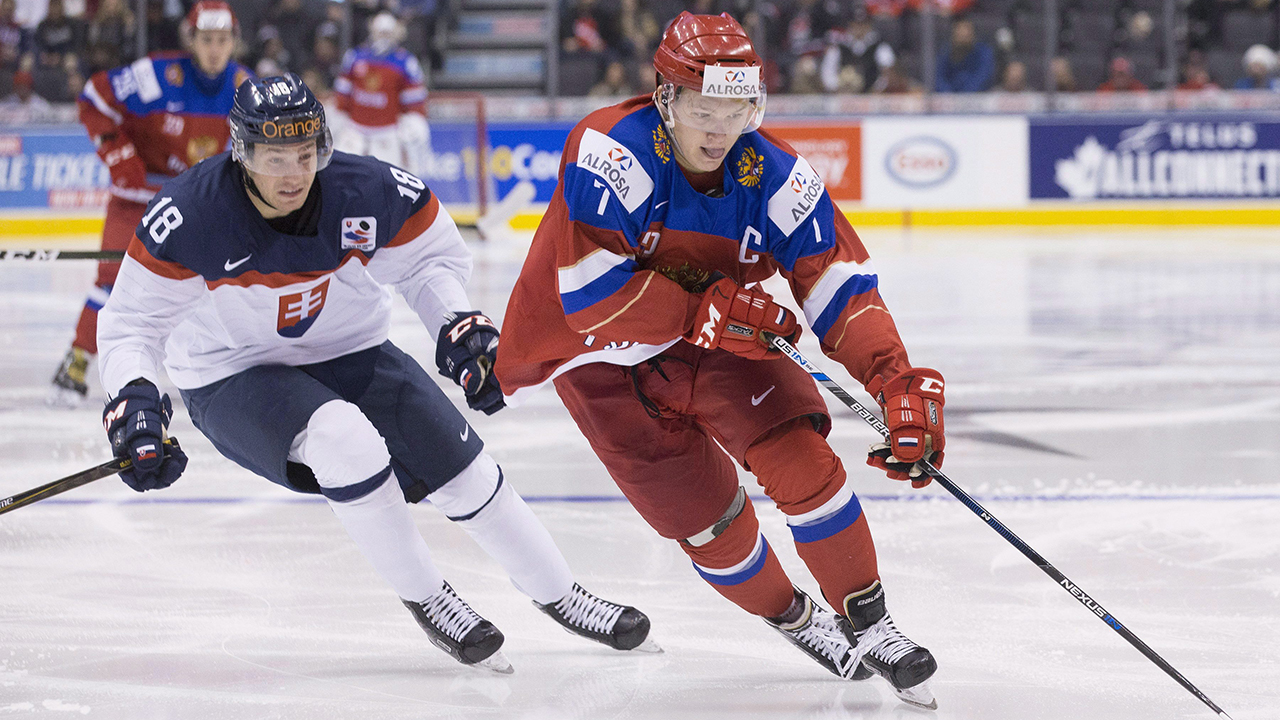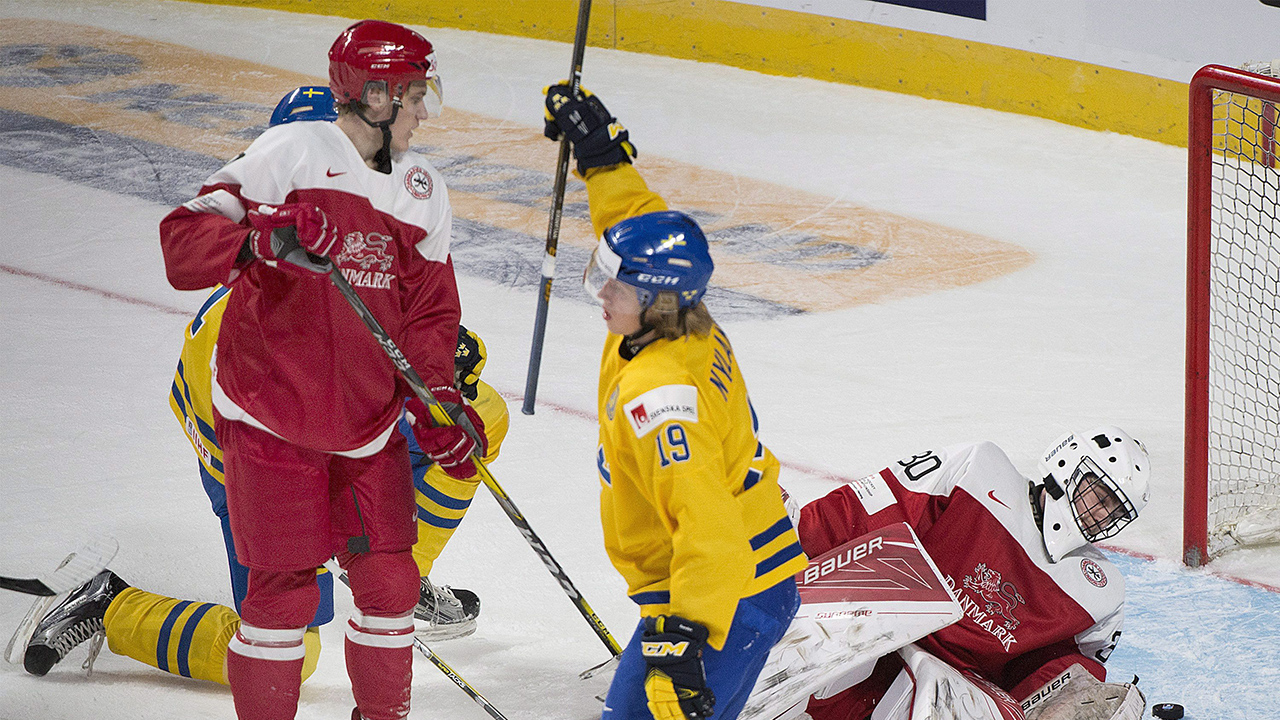The excitement is heating up at the world junior hockey championship as the tournament progresses toward its later stages.
The preliminary round was filled with plenty of excitement — and one major shocker — that shouldn’t go unnoticed, so here’s a look back at standout performances thus far.
10. Olli Juolevi (Finland)
The Canucks’ first-rounder from 2016 tied for the tournament lead in points by a defencemen (nine assists) en route to a gold medal in the 2016 tournament. Juolevi finished the 2017 round robin with just one assist in four games played. However, what was most astonishing statistically, was that Juolevi averaged 20:35 time on ice per game, the third most of any defenceman on his team. His usage alone may have been reason to change coaches.
9. Team Denmark
For the first time in WJC play, the Danes have won two round-robin games in the same event. They didn’t stack up against Sweden, losing 6-1 in the tournament opener, but responded with back-to-back 3-2 wins against Finland and the Czech Republic. The Danes then blew two three-goal leads before losing to Switzerland in the shootout, but earned the point that allowed them to finish second in the group. No team has been more fun to follow.
8. Thomas Chabot (Canada)
He’s playing with a confidence not seen before from him at the junior level. Chabot got into one NHL game with the Ottawa Senators before being sent back to Saint John in early November. He’s skating well, logging plenty of high-leverage minutes and defending better than he has at any point in his career. He’s displayed huge strides in his development and has thrived as the only returnee on Canada’s back end.

Team Russia’s Kirill Kaprizov. (Chris Young/CP)
7. Kirill Kaprizov (Russia)
The most dynamic Russian forward throughout his nation’s first four games, the Minnesota prospect tied for the round-robin lead with five goals. He was in on half of Russia’s 16 goals scored. It wasn’t just the point production, but good things seemed to happen just about every time Kaprizov was out on the ice. He’s not the world’s best skater, but he makes up for it with elite hockey IQ.
6. Matt Barzal (Canada)
Barzal has the type of personality perfectly suited for being the man, or one of the men. He has excelled offensively, especially on the power play. He edges well, is quick off the mark and has wicked vision. He’s logged the most minutes of any Canadian forward, while being completely engaged in every game. He’s shooting the puck more than expected.
5. Clayton Keller (USA)
The diminutive American was the only forward selected by Arizona out of five picks in the 2016 NHL draft. Keller, a Boston University freshman, dazzled with a willingness to make high-risk plays and complete them. He has swagger and led the Americans to top spot in Group B with seven points.
4. Nico Hischier (Switzerland)
Based on Sportsnet’s December rankings, Hischier is the highest-rated draft eligible participating in the event. And his stock may very well have risen. He started the season as a potential first-round pick, but is now considered widely to be a top-ten, maybe even a top-five pick in the 2017 NHL draft. He has been aided by Canada not having Nolan Patrick available, Sweden not selecting Timothy Lilijegren and the Russians leaving Klim Kostin at home. Those players are rival draft eligibles.
3. Rasmus Dahlin (Sweden)
The 16-year-old Swedish defenceman already has scouts drooling for the 2018 draft. Despite playing just under 11 minutes per game, Dahlin has impressed with his size and poise. Some are already projecting him to be then next Nicklas Lidstrom, which would stand to reason that he is now being projected as the first overall pick a year from June.

Sweden’s Alexander Nylander celebrates a goal. (Graham Hughes/CP)
2. Alexander Nylander (Sweden)
He performed well as an underage last year after his brother William was injured in Sweden’s first game. Nylander is immensely talented and has an arrogance to his game that allows him to do things on the ice that others simply can’t. Most impressive is that his average shift length is just under 40 seconds, showing an essential adjustment in order to make his way to the NHL.
1. Team Finland
Last in Group A, a year after winning the whole jar of wax. It’s never happened before in the history of the WJC. To make things worse, the Finns changed coaches before their final round-robin game with Jussi Ahokas coming out of the TV booth and taking over for Jukka Rautakorpi. Finland has never finished worse than seventh in the WJC and has only ever placed outside the top 8 in two IIHF events period.









